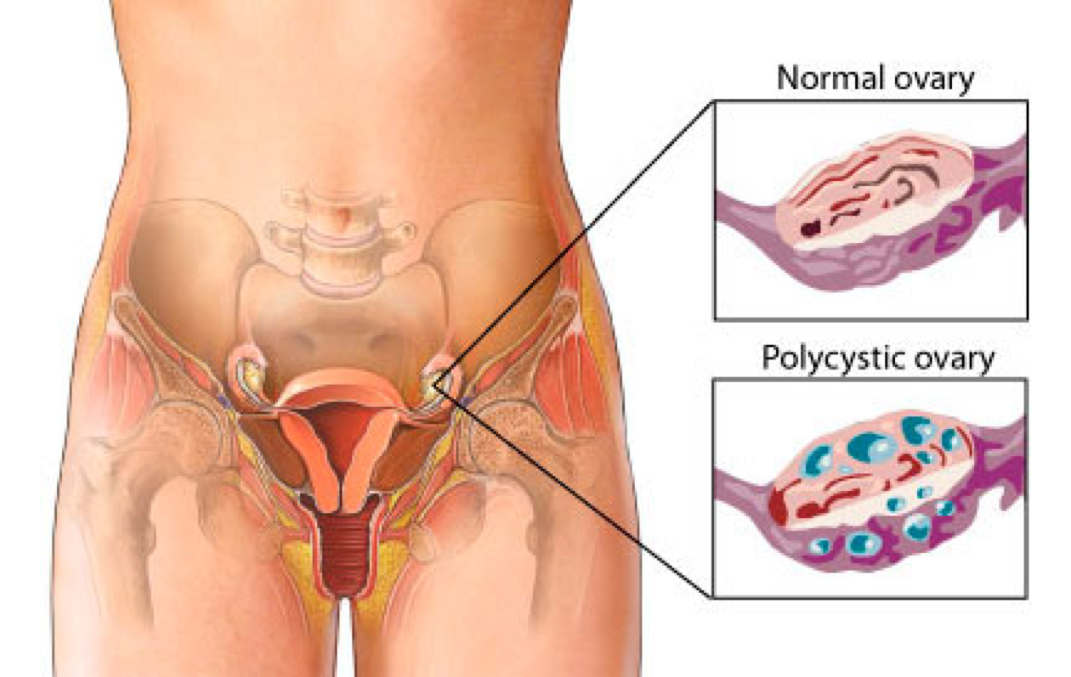Polycystic Ovary Syndrome (PCOS) in a nutshell:
• Higher levels of androgens
• Lower levels of estrogen
• Irregular or absent menstrual periods
• Many small cysts on ovaries
The ovaries, where a woman’s eggs are produced, have tiny fluid-filled sacs called follicles or cysts. As the egg grows, the follicle builds up fluid. When the egg matures, the follicle breaks open, the egg is released, and the egg travels through the fallopian tube to the uterus (womb) for fertilization. This is called ovulation.
In women with PCOS, the ovary doesn't make all of the hormones it needs for an egg to fully mature. The follicles may start to grow and build up fluid but ovulation does not occur. Instead, some follicles may remain as cysts. For these reasons, ovulation does not occur and the hormone progesterone is not made. Without progesterone, a woman's menstrual cycle is irregular or absent. Plus, the ovaries make male hormones(androgens), which also prevent ovulation.
http://womenshealth.gov/publications/our-publications/fact-sheet/polycystic-ovary-syndrome.cfm
• Higher levels of androgens
• Lower levels of estrogen
• Irregular or absent menstrual periods
• Many small cysts on ovaries
The ovaries, where a woman’s eggs are produced, have tiny fluid-filled sacs called follicles or cysts. As the egg grows, the follicle builds up fluid. When the egg matures, the follicle breaks open, the egg is released, and the egg travels through the fallopian tube to the uterus (womb) for fertilization. This is called ovulation.
In women with PCOS, the ovary doesn't make all of the hormones it needs for an egg to fully mature. The follicles may start to grow and build up fluid but ovulation does not occur. Instead, some follicles may remain as cysts. For these reasons, ovulation does not occur and the hormone progesterone is not made. Without progesterone, a woman's menstrual cycle is irregular or absent. Plus, the ovaries make male hormones(androgens), which also prevent ovulation.
http://womenshealth.gov/publications/our-publications/fact-sheet/polycystic-ovary-syndrome.cfm
I was diagnosed with PCOS only a year ago but have been dealing with its symptoms since puberty, I just wasn't aware that they had a name for it. No hormones = no ovulation, no ovulation = no mature egg, no mature egg = no baby!

 RSS Feed
RSS Feed